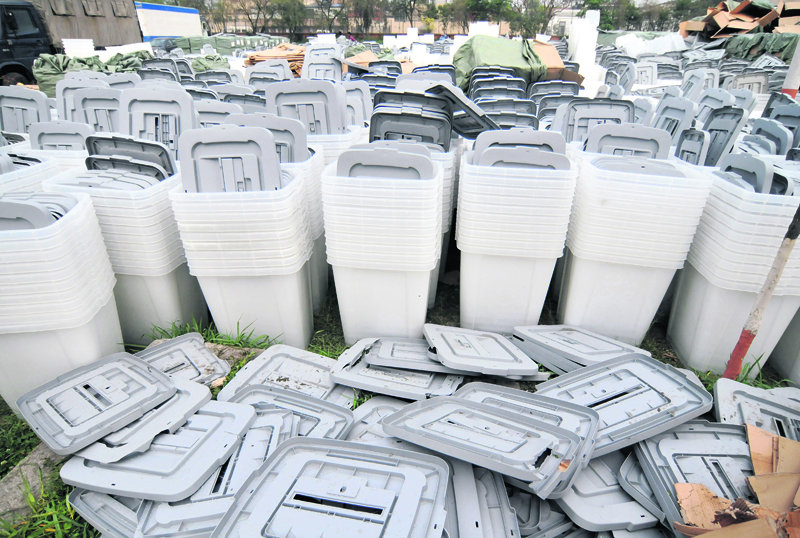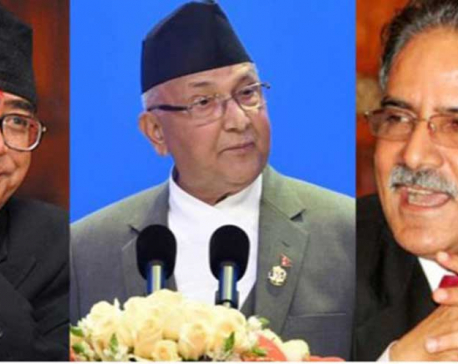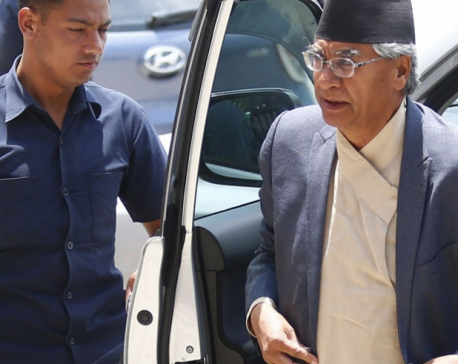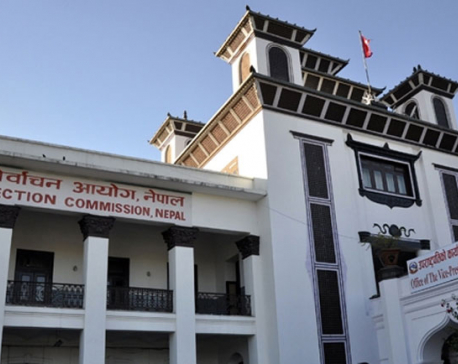
OR
Holding provincial and central polls same day will save 6 billion: Experts
Published On: July 29, 2017 05:17 AM NPT By: Bhadra Sharma

KATHMANDU, July 29: Election experts have said that at least five to six billion rupees in election expanses could be saved if both the provincial assembly and parliamentary elections are conduct on the same day.
A day after Prime Minister Sher Bahadur Deuba proposed to the election commissioners to conduct both the elections at a single go, former election experts seconded the idea, saying this will significantly reduce election costs. They also argued that the idea will help ensure that both the elections are in fact held. Stakeholders have been worried about two crucial elections being conducted within such a short span of time.
"If both the [provincial assembly and parliamentary] elections are conducted on the same day it will save at least five to six billion. This does not include expenditures on security forces, logistics and the expenses for political parties," said former chief election commissioner Neel Kantha Uprety.
Uprety further said that holding both sets of elections the same day is the only feasible solution as the constitutional deadline for concluding all the elections is fast approaching. The constitution has fixed January 21, 2018 as the cut-off date for holding the remaining elections. "Personally, I see this as the best option," said Uprety.
Uprety suggested two separate ballot papers--one for provincial assembly elections and another for parliament elections--and the counting of votes for proportional representation based on the votes secured by various party candidates.
Frequent deployment of civil servants and security personnel on the ground, printing of ballot papers, conducting voter education repeatedly and additional salary and allowances for those deployed on election duty will run up the election costs by billions, it is pointed out.
Another former election commissioner, Dolakh Bahadur Gurung, said holding both the elections on the same day is no big deal. "It is possible. But the parties need to amend the laws related to provincial assembly and parliamentary elections," he said.
Echoing Uprety, Gurung also said billions in election expenses can be saved by holding both the elections together. "By election expenditures we should not just understand the expanses incurred by the election commission. Expenditures on the security forces and political parties are also huge," said Gurung.
Although the local units elections in Province 2 are yet to be conducted the EC has already spent Rs 6.30 billion. Altogether Rs 9 billion was allocated for the security forces but they required additional funds as the polls originally set for May 14 were conducted in three phases following frequent deferrals.
The EC needs to deploy thousands of civil servants and security personnel to arrange the elections. Frequent mobilization of security personnel and civil servants costs billions.
In recent years, election costs have increased dramatically. According sources familiar with elections, non-cooperation with the election body and obstacles in election-related work including the vote-counting process at various local units have contributed to the balooning expenditures.
The EC had spent Rs 110 million (in 1991 rupees) for holding the parliamentary elections of 1991, according to 'Election Cost in Nepal', a book written by Chief Election Commissioner Ayodhee Prasad Yadav. Likewise, the legislative election in 1994 cost the EC Rs 240 million. A similar election was held in 1999 at a total cost of Rs 360.6 million.
The cost increased drastically in the first Constitution Assembly (CA) election of 2008. The election body spent Rs 2.9 billion.
Likewise, Rs 4.26 billion was spent for the second CA election of 2013, excluding security costs, according to former EC officials.
You May Like This

Big 3 agree on holding provincial, federal polls on same day
KATHMANDU, Aug 16: Three major political parties have agreed to hold the federal and provincial elections on the same day. Read More...

PM proposes holding provincial, parliamentary polls simultaneously
KATMANDU, July 27: Prime Minister Sher Bahadur Deuba has proposed with the Election Commission (EC) to conduct both the provincial and... Read More...

EC moots deadlines for provincial, central polls
KATHMANDU, July 1: After the successful second round local elections, the Election Commission (EC) has urged the government to clear the... Read More...




Just In
- Govt receives 1,658 proposals for startup loans; Minimum of 50 points required for eligibility
- Unified Socialist leader Sodari appointed Sudurpaschim CM
- One Nepali dies in UAE flood
- Madhesh Province CM Yadav expands cabinet
- 12-hour OPD service at Damauli Hospital from Thursday
- Lawmaker Dr Sharma provides Rs 2 million to children's hospital
- BFIs' lending to private sector increases by only 4.3 percent to Rs 5.087 trillion in first eight months of current FY
- NEPSE nosedives 19.56 points; daily turnover falls to Rs 2.09 billion















Leave A Comment